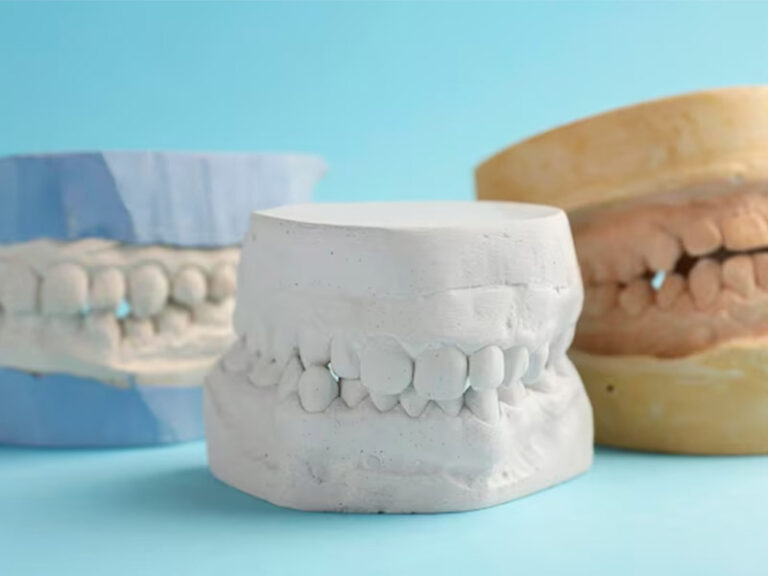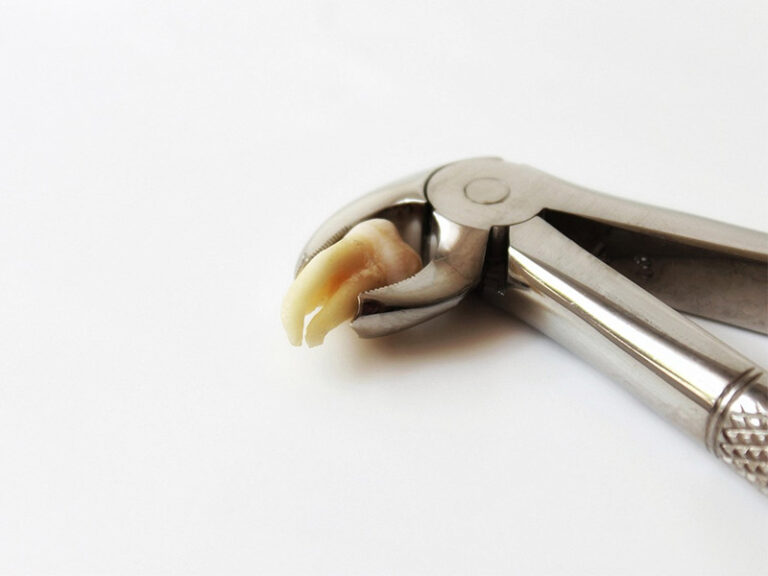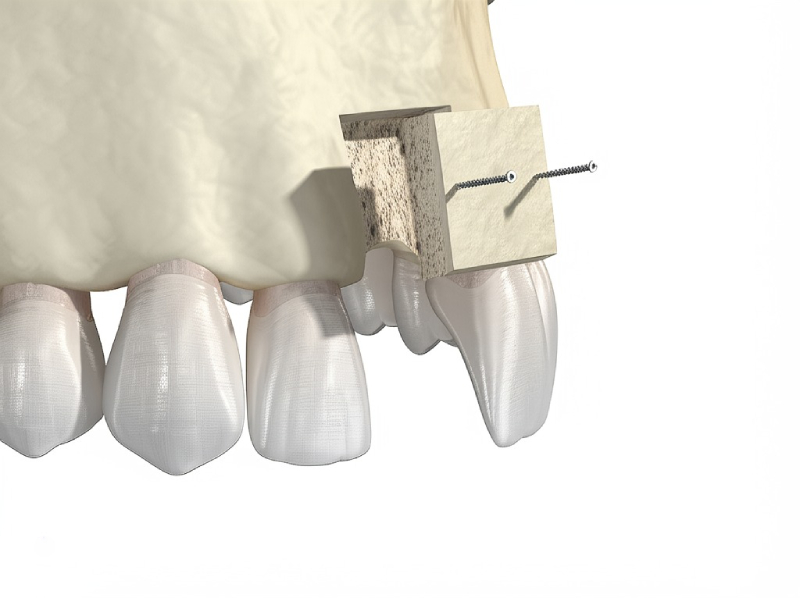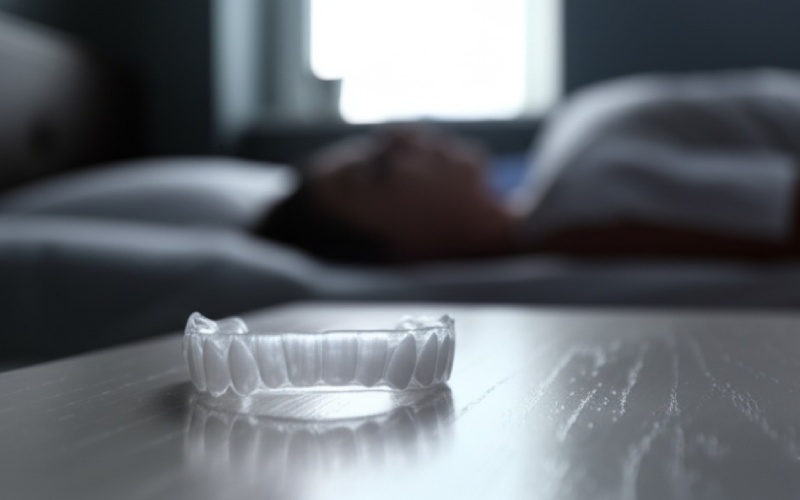
Hard vs. Soft Night Guards: Which is Right for Your Grinding or TMJ?
Do you wake up with a sore jaw? Or maybe a dull headache that just won’t quit? Perhaps your partner has told you that you grind your teeth in your sleep. If any of this sounds like you, you’re in the right place. This guide is here to walk you through the difference between hard vs. soft night guards. We’ll break down the good and the bad of each one. That way, you and your dentist can pick the best option to protect your smile and finally get some relief.
Table of Contents
What is This Grinding and Clenching I Do at Night?
That habit of grinding and clenching has a fancy name: bruxism. When it happens while you’re asleep it’s called sleep bruxism. Believe it or not some people even do it during the day without realizing it. That’s known as awake bruxism. You might even be clenching your jaw right now as you focus on reading this!
This constant pressure is a big deal for your teeth and jaw. Over time it can lead to some serious trouble. You might notice your teeth getting shorter which is called tooth wear. You could also end up with chipped teeth or even cracked teeth. This can make your teeth super sensitive and wear away the hard outer layer of your teeth called enamel. This enamel erosion is one of the biggest signs you need a night guard.
And the problems don’t stop with your teeth. All that pressure can cause jaw pain and make it hard to open and close your mouth. This is a tell-tale sign of Temporomandibular Joint (TMJ) Disorder or TMD for short. You might hear a clicking or popping sound in your jaw or feel like your jaw muscles are always sore. These are all bruxism symptoms you shouldn’t ignore and getting the right sleep bruxism treatment is all about stopping this damage in its tracks.
How Can a Little Piece of Plastic Help My Jaw Pain?
It looks simple enough but a night guard is a seriously powerful tool. A night guard is just a type of oral appliance. You might also hear it called an occlusal guard a dental splint a bite guard or a grind guard. They all do the same thing. They put a protective cushion between your top and bottom teeth.
This small device does a couple of amazing things. First it acts like a pillow for your teeth. This stops them from getting damaged by the incredible force of your clenching and grinding. It protects your natural teeth and any dental restoration work you’ve had done like crowns or fillings. Second it can help your jaw muscles finally relax. This can bring incredible jaw pain relief and even cut down on chronic headaches. For people struggling with TMD a special night guard for TMJ disfunction can help hold the jaw in a stable spot and ease the pain. It’s a game-changer for relieving jaw tension.
What’s the Story with Soft Night Guards?
Let’s start with the kind you’ll see most often online or at the drugstore: the soft night guard. These are usually made from a squishy rubber-like plastic such as EVA (Ethylene-Vinyl Acetate). They’re flexible and feel a lot like a mouthguard you’d wear for sports.
The main selling point for a soft night guard is comfort. They’re pretty easy to get used to. Because they’re soft they don’t feel as bulky or weird in your mouth when you first start wearing one. They’re also less expensive especially when you compare a boil and bite vs custom night guard from a store. A lot of people see them as a good starting point.
A soft thermoplastic night guard is a solid choice for folks with mild bruxism. If you only grind your teeth every now and then it can give you the protection you need. It’s also not as bulky so some people find it easier to sleep with. It’s one of the most common adult night guard options out there.
So Are Soft Guards a Slam Dunk for Comfort?
Not so fast. While soft guards feel comfortable at first they come with some major downsides. Their biggest weakness is durability. If you’re a heavy-duty grinder you could chew right through a soft guard in no time. They just aren’t built to last and you’ll find yourself wondering when to replace a night guard like this. The short answer is: often.
But here’s the real kicker for some people. If you have severe bruxism a soft chewy guard can actually make your grinding worse. It sort of tricks your brain into thinking it’s got something to chew on kind of like giving a dog a new chew toy. This can fire up your jaw muscles and make you clench even harder which obviously isn’t the goal.
Plus over the counter night guard risks are a real thing. A “boil-and-bite” guard you get from a store just won’t fit as well as a custom one from a dentist. A bad fit can be uncomfortable and in some cases it could even make your teeth shift or mess up your bite. This is why many dentists worry about non-customizable night guards. So are soft night guards effective? For light grinders maybe. For anyone with serious grinding or TMJ probably not.
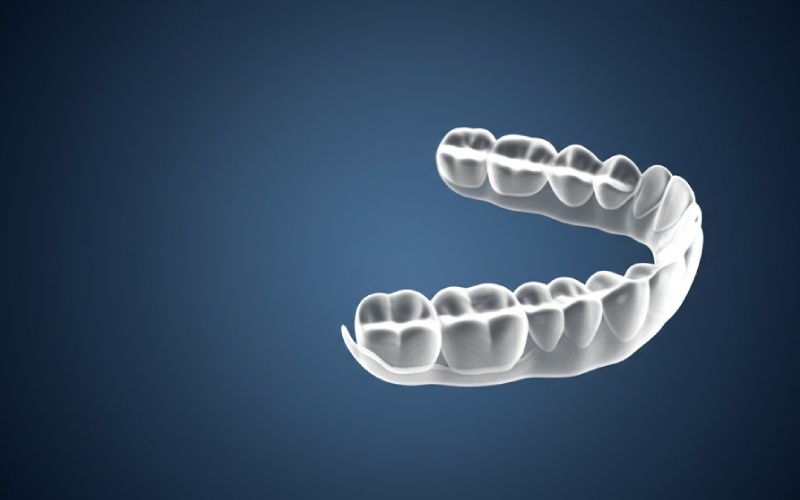
Okay What About Hard Night Guards?
Now let’s talk about the heavy-hitter: the hard night guard. These are almost always custom-made by a dental professional in a dental laboratory. They’re made from a very tough hard material like acrylic. This hard acrylic splint isn’t flexible at all. It’s a rigid shield for your teeth.
A hard guard also called a hard acrylic splint is made from a perfect copy of your teeth. Your dentist will take a dental impression to get the mold just right. This means the custom fit night guard will snap on perfectly. It can be made for your upper teeth (a maxillary night guard) or your lower teeth (a mandibular night guard). Your dentist will help you figure out which is better for you.
The whole night guard fitting process is straightforward and ensures a perfect fit. Sure the dentist made night guard cost is higher but the benefits are massive. Think of it as an investment in your oral health.
Why Would I Pick Something Hard Over Something Soft?
It definitely sounds less comfortable and you’re not wrong—there’s an adjustment period. But the hard night guard advantages are huge especially for serious grinders. First off they are incredibly durable. The lifespan of night guards that are hard can be five ten or even more years. You are not going to chew through this thing. This makes the cost of night guards way better in the long run.
Even more important a hard guard is much better for your jaw. It gives your teeth a smooth slick surface to slide on. When you try to grind your teeth just glide around without being able to grip. This can actually help your brain unlearn the grinding habit over time. It also gives your jaw firm support which is exactly what you need for TMJ pain relief. It stabilizes everything and gives those overworked muscles a much-needed vacation.
This is why a hard occlusal splint is the #1 dentist recommended night guard for severe bruxism and TMJ problems. It’s not just a cushion it’s a tool designed to provide real bruxism symptoms relief. So are hard night guards comfortable? Not right away but people get used to them. And the pain relief they get makes it totally worth it.
Is There a “Best of Both Worlds” Option?
What if you want the toughness of a hard guard with the comfort of a soft one? You’re in luck. There’s a third option called a hybrid night guard or a dual laminate night guard. It’s the clever compromise in the dental night guard comparison.
These guards are brilliantly designed. They have a soft comfortable layer on the inside that sits against your teeth and gums. But the outside biting surface is made of that same tough hard acrylic. So you get the comfort of a soft guard where it matters most and you get the durability and slick surface of a hard guard on the outside.
A hybrid night guard effectiveness is off the charts. It’s a fantastic choice for people with moderate to severe grinding who are a little nervous about how a full hard guard might feel. It really does combine the best parts of both. Of course these are also custom-made by a dentist and come with a higher price tag but they are an amazing solution for many people.
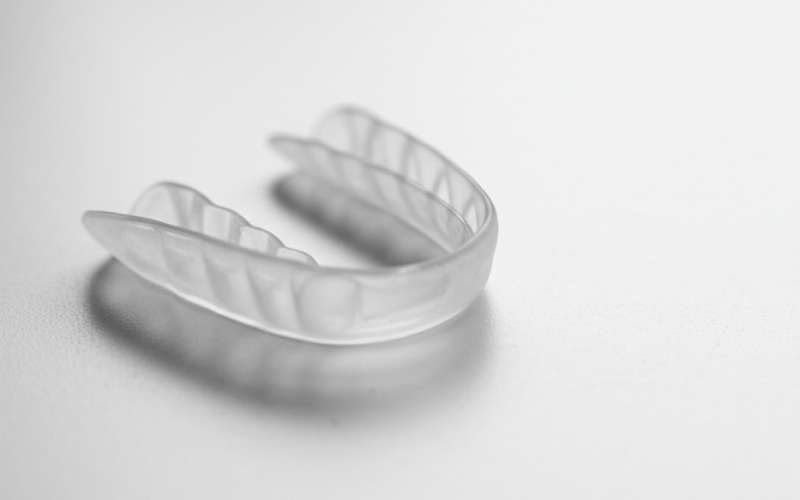
How Do I Know Which One Is for Me?
Picking the right guard really boils down to your own situation. You need to think about your body your habits and your needs. Here’s a quick guide to help you sort it out before you chat with your dentist.
Ask yourself these questions:
- How bad is my grinding? If it’s pretty light and not an every-night thing a custom soft guard might do the trick. If you grind your teeth like it’s your job you should definitely look at a hard or hybrid guard.
- Do I have jaw pain or TMJ? If you have TMJ symptoms like clicking popping or a constantly sore jaw a hard guard is almost always the way to go. It gives your jaw the stability it’s craving. A soft guard might not help and could even make things worse.
- What’s my budget? A store-bought guard is cheap today but you might have to replace it over and over. A custom fit night guard cost is higher at the start but a hard guard can last for years saving you a lot of money down the road.
- What does my dentist think? This is the most important question of all. Your dentist can see the wear patterns on your teeth and check your jaw health. They’re the expert who can give you the best dental professional advice night guard.
Here’s a simple chart to help you compare:
| Feature | Soft Night Guard | Hard Night Guard | Hybrid Night Guard |
|---|---|---|---|
| Best For | Light occasional grinding | Heavy grinding TMJ | Medium to heavy grinding |
| Comfort | Comfy right away | Takes some getting used to | Very comfy (soft inside) |
| Durability | Low to medium | Super tough | Very tough |
| Lifespan | 6 months – 2 years | 5+ years | 3-7+ years |
| Cost | Low to moderate | High | High |
| Jaw Support | Not much | Excellent | Excellent |
Should I Buy a Guard at the Store or from My Dentist?
This is a really big deal. You’ll see tons of over-the-counter night guards at the pharmacy. They’re cheap and you can get one today. But I always urge people to be careful. A guard that doesn’t fit right can be really uncomfortable and in some cases it can even move your teeth out of place.
A custom night guard from your dentist is made for your mouth and nobody else’s. The fit is perfect. This makes it more comfortable over time and a whole lot more effective. Your dentist also makes sure the guard is helping your bite not hurting it. The American Dental Association (ADA) recommends custom-fit appliances for a reason. They’re safer and they just work better.
Think of it this way: you can buy cheap reading glasses at the corner store and they might be okay. But if you want to see clearly without giving yourself a headache you go to an eye doctor for a real prescription. Your teeth and jaw are just as important. Getting a professional night guard is the smartest way to take care of them.
What’s My Next Step to Stop the Grind?
You’ve just learned a ton about the different types of bite splints. You know the soft night guard benefits for light grinders and the hard night guard advantages for more serious cases. You even know about the awesome hybrid night guard that splits the difference.
The most important thing you can do now is talk to an expert. Go make an appointment with your dentist. They can properly diagnose your issue and go over all the TMJ night guard options with you. They’ll examine your teeth check your jaw and listen to you describe your symptoms. Working together you can choose the perfect solution.
Don’t wait until you crack a tooth or the headaches become unbearable. Taking action now is an investment in your future oral health. It’s an investment in a pain-free life and a smile you can be proud of.
Key Things to Remember:
- Bruxism (teeth grinding) is serious and can lead to cracked teeth and jaw pain (TMD).
- Soft night guards are comfy and okay for light grinding but they wear out fast and can make heavy clenching worse.
- Hard night guards are super durable and are the best pick for heavy grinding and TMJ pain because they protect teeth and support the jaw.
- Hybrid guards are a great combo of comfort (soft inside) and toughness (hard outside).
- Custom-fit guards from a dentist are always safer and work better than the “boil-and-bite” kind from a store.
- Always talk to your dentist to get a real diagnosis and find the perfect night guard for you.

